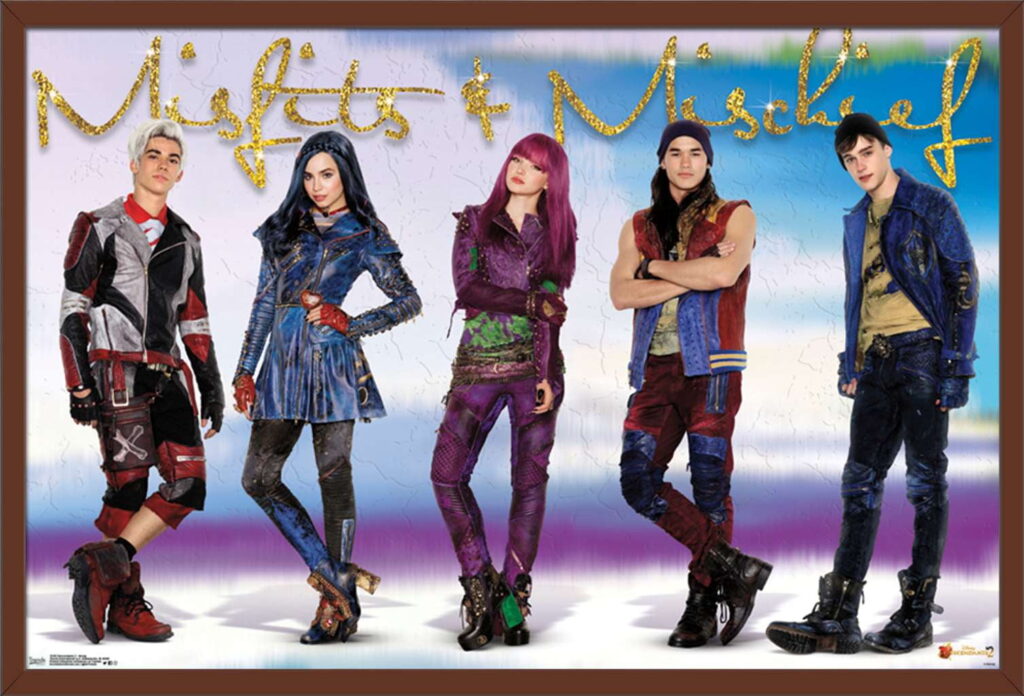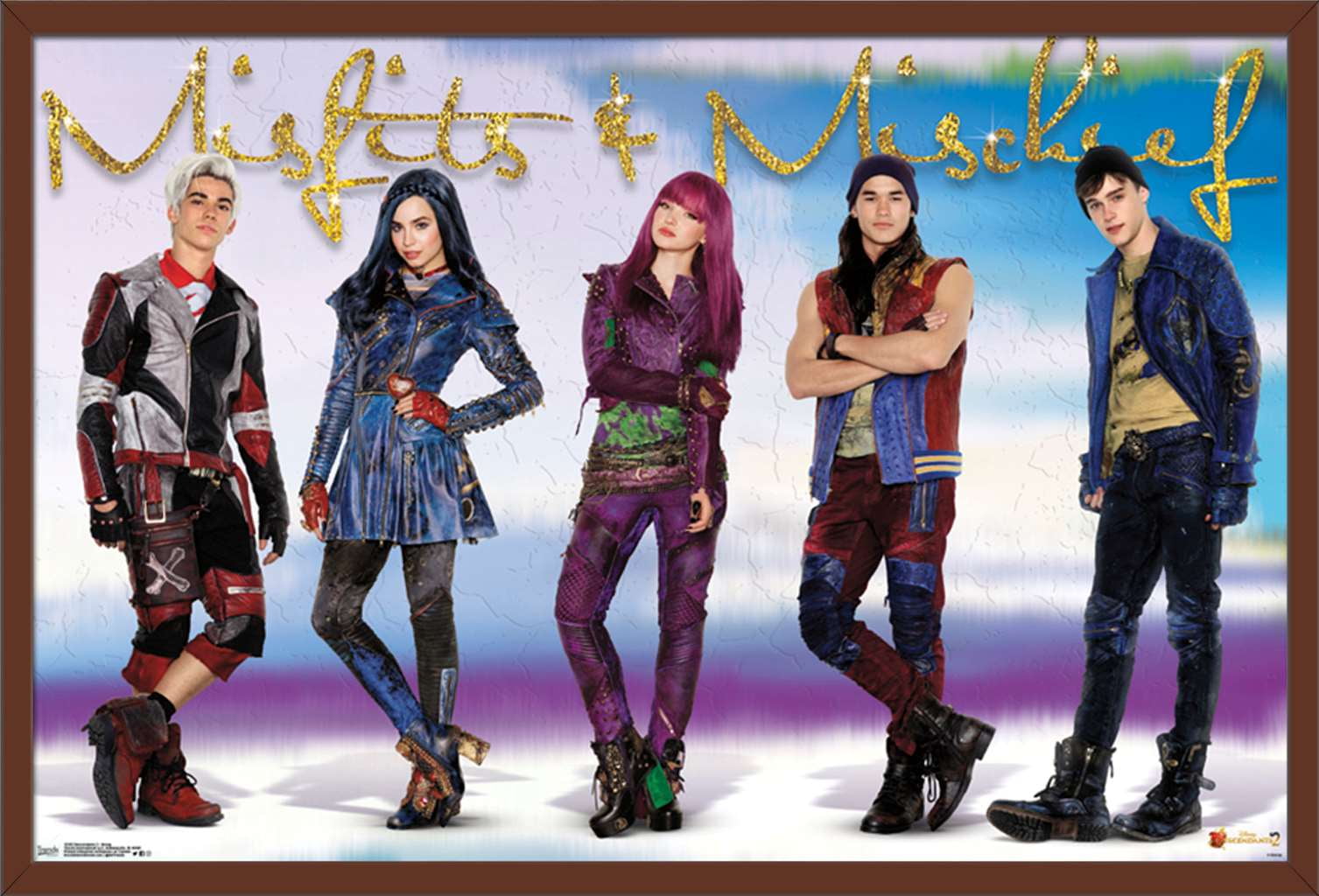
The Untold Story: Unveiling the Life of the Evil Queen’s Daughter
For generations, the Evil Queen has been etched in our collective consciousness as the epitome of villainy, a figure driven by vanity and a thirst for power. But what about her progeny? What is it like to be the evil queen’s daughter? This question, often relegated to the fringes of fairytale narratives, deserves a closer examination. This article delves into the potential realities, challenges, and complexities of such a unique, and often fraught, existence.
The Shadow of a Legacy
The burden of a parent’s reputation can be heavy, especially when that parent is known for their malevolence. Imagine growing up knowing that your mother’s name is synonymous with envy, cruelty, and dark magic. The evil queen’s daughter would likely face constant judgment and suspicion. Every action, every word, would be scrutinized through the lens of her mother’s infamous deeds. Could she ever escape the shadow of such a powerful and negative legacy?
This type of childhood could lead to several potential outcomes. On one hand, the daughter might internalize the negative perceptions and become a self-fulfilling prophecy, embracing the villainous path laid out before her. On the other hand, she might vehemently reject her mother’s ways, striving to prove that she is different, that she is not destined to repeat the mistakes of the past. This constant struggle against expectation could be incredibly taxing, shaping her personality and defining her life choices.
The Nature vs. Nurture Debate
The question of whether villainy is inherent or learned is a classic debate, and it’s particularly relevant when considering the evil queen’s daughter. Does she possess a predisposition to evil, inherited from her mother’s bloodline? Or is she a blank slate, shaped by the environment in which she is raised? The answer, as with most things in life, is likely a combination of both.
Genetic predispositions can certainly play a role. Perhaps the daughter inherits a tendency towards ambition, a strong will, or a heightened sensitivity to perceived slights – traits that, if not properly channeled, could lead down a dark path. However, the environment in which she is raised is equally crucial. If she is surrounded by negativity, manipulation, and a lack of empathy, she is far more likely to adopt similar behaviors. Conversely, if she is shown love, compassion, and understanding, she has a much greater chance of breaking free from the cycle of villainy.
The Quest for Identity
One of the biggest challenges for the evil queen’s daughter would be forging her own identity. Constantly defined by her mother’s actions, she would struggle to establish herself as an individual with her own thoughts, feelings, and aspirations. This quest for identity could take many forms. She might try to distance herself from her mother’s world, seeking out new friends, new interests, and a new way of life. She might even change her name, symbolically severing ties with her past.
Alternatively, she might try to understand her mother, to delve into the reasons behind her villainy. Perhaps she would discover that the evil queen was not inherently evil, but rather a victim of circumstance, driven to desperate measures by trauma or injustice. This understanding could lead to a sense of empathy and a desire to redeem her mother’s legacy, not by embracing evil, but by fighting for good.
Relationships and Trust
Building relationships would be another significant hurdle for the evil queen’s daughter. How could she trust others when she knows that they likely harbor suspicion and prejudice towards her? How could she open herself up to love and friendship when she fears that she will be judged solely on her mother’s reputation?
Finding genuine connections would require immense courage and vulnerability. She would need to be honest about her past, while also demonstrating that she is not defined by it. She would need to prove that she is worthy of trust, despite the actions of her mother. This process could be long and arduous, filled with setbacks and disappointments. But for the evil queen’s daughter who is determined to forge her own path, the rewards of genuine connection would be immeasurable.
The Power of Choice
Ultimately, the story of the evil queen’s daughter is a story about choice. It is a story about the power to break free from predetermined narratives, to defy expectations, and to forge one’s own destiny. She may be born into a legacy of evil, but she is not condemned to repeat it. She has the power to choose a different path, to embrace goodness, and to create a better future for herself and for others.
This theme resonates deeply with audiences because it speaks to the universal human experience of overcoming adversity and challenging societal expectations. It reminds us that we are not defined by our past, our family history, or the labels that others place upon us. We have the power to choose who we want to be, and to create the life we want to live. The daughter of the evil queen has a unique opportunity to show the world that even from the darkest of origins, light can emerge.
The Allure of the Anti-Hero
The concept of the evil queen’s daughter also taps into the fascination with anti-heroes. These characters, often morally ambiguous and flawed, captivate us because they are relatable. They struggle with internal conflicts, make difficult choices, and often operate in the gray areas of morality. The daughter of the evil queen, grappling with her heritage and her desire for redemption, perfectly embodies this archetype.
Her journey is not a simple one of good versus evil. It is a complex exploration of human nature, exploring the nuances of morality and the challenges of overcoming adversity. Her flaws and struggles make her relatable, while her potential for redemption makes her inspiring. [See also: The Morality of Fairytales] She represents the idea that even those who come from darkness can find their way to the light.
Modern Interpretations and Adaptations
The idea of the evil queen’s daughter has been explored in various forms of media, from books and movies to television shows and stage productions. These adaptations often offer unique perspectives on the character, exploring different aspects of her personality, her motivations, and her relationships. Some portray her as a villain in her own right, embracing her mother’s legacy of evil. Others depict her as a conflicted heroine, struggling to overcome her dark origins and find her own path.
One common trope is to portray the daughter as initially succumbing to her mother’s influence, only to later realize the error of her ways and fight against her. This storyline allows for a compelling arc of redemption, showcasing the daughter’s growth and transformation as she learns to embrace her own values and fight for what is right. [See also: The Evolution of Disney Villains] Another popular theme is to explore the complex relationship between the mother and daughter, delving into the motivations behind the evil queen’s actions and the impact they have on her daughter’s life.
The Future of the Narrative
The story of the evil queen’s daughter is far from over. As long as fairytales continue to captivate our imaginations, this character will continue to evolve and resonate with audiences. Future iterations of the story may explore new themes, delve into different aspects of her personality, and offer fresh perspectives on her journey. Perhaps we will see her embrace her magical abilities for good, using her powers to protect the innocent and fight against injustice. Or perhaps we will see her grapple with the complexities of leadership, navigating the challenges of ruling a kingdom while trying to overcome the negative legacy of her mother.
Regardless of the specific direction, the story of the evil queen’s daughter will continue to be a powerful and relevant one. It is a story about choice, redemption, and the enduring power of hope. It is a story that reminds us that even in the darkest of times, there is always the potential for light to emerge. The future of this character is bright, full of possibilities and potential for new and compelling narratives. The tale of the evil queen’s daughter remains a captivating exploration of good versus evil, nature versus nurture, and the enduring quest for identity.
In conclusion, the life of the evil queen’s daughter is fraught with challenges, but also filled with possibilities. She faces the burden of a negative legacy, the pressure of societal expectations, and the struggle to forge her own identity. But ultimately, she has the power to choose her own path, to embrace goodness, and to create a better future for herself and for others. Her story is a testament to the enduring power of hope and the human capacity for redemption.

